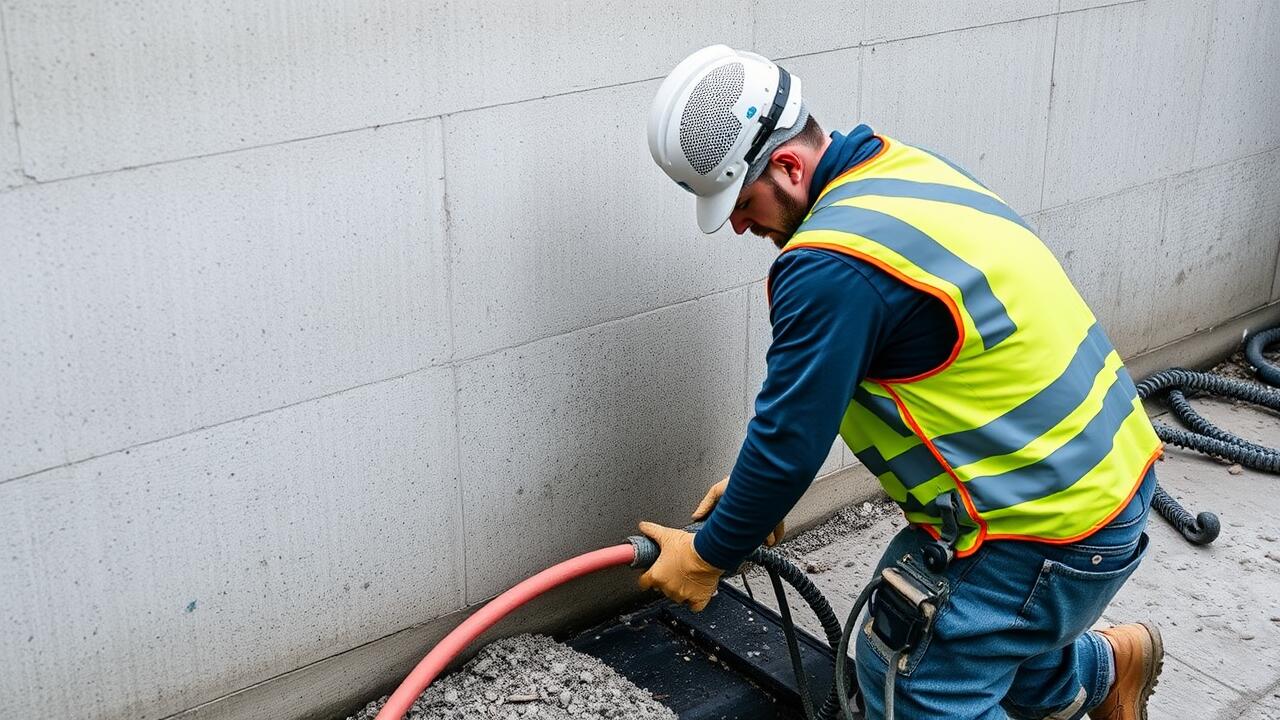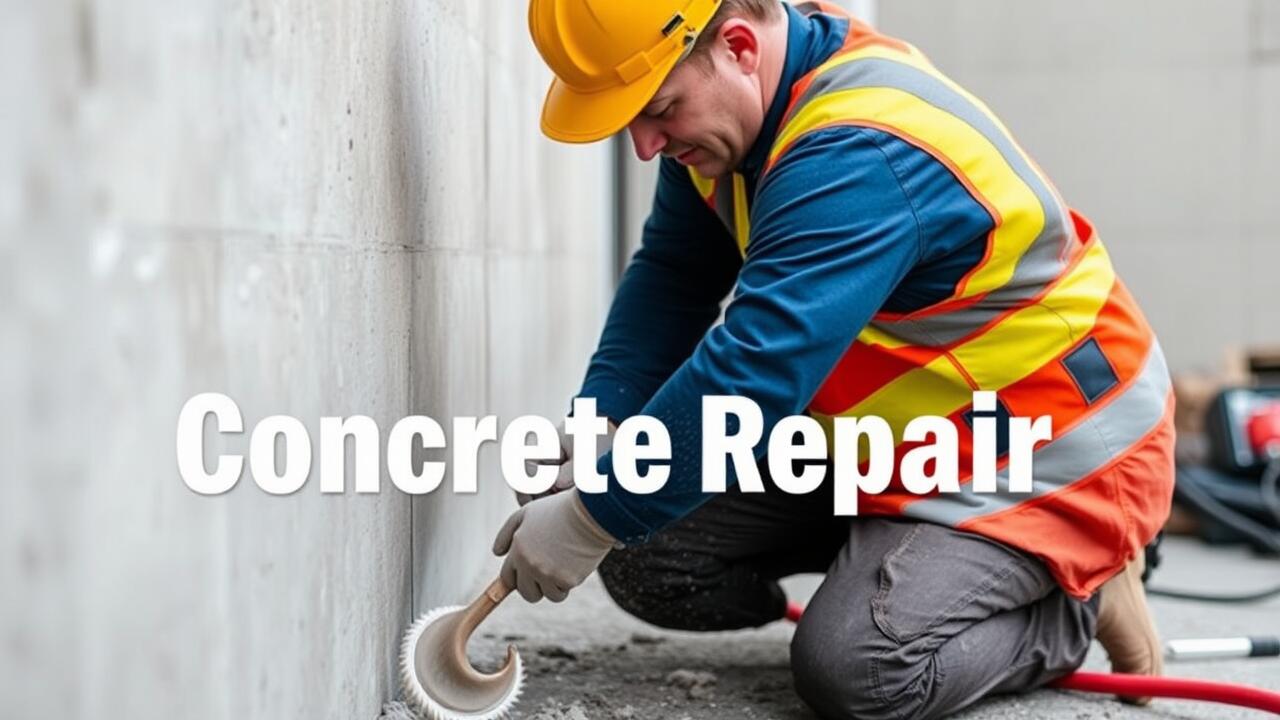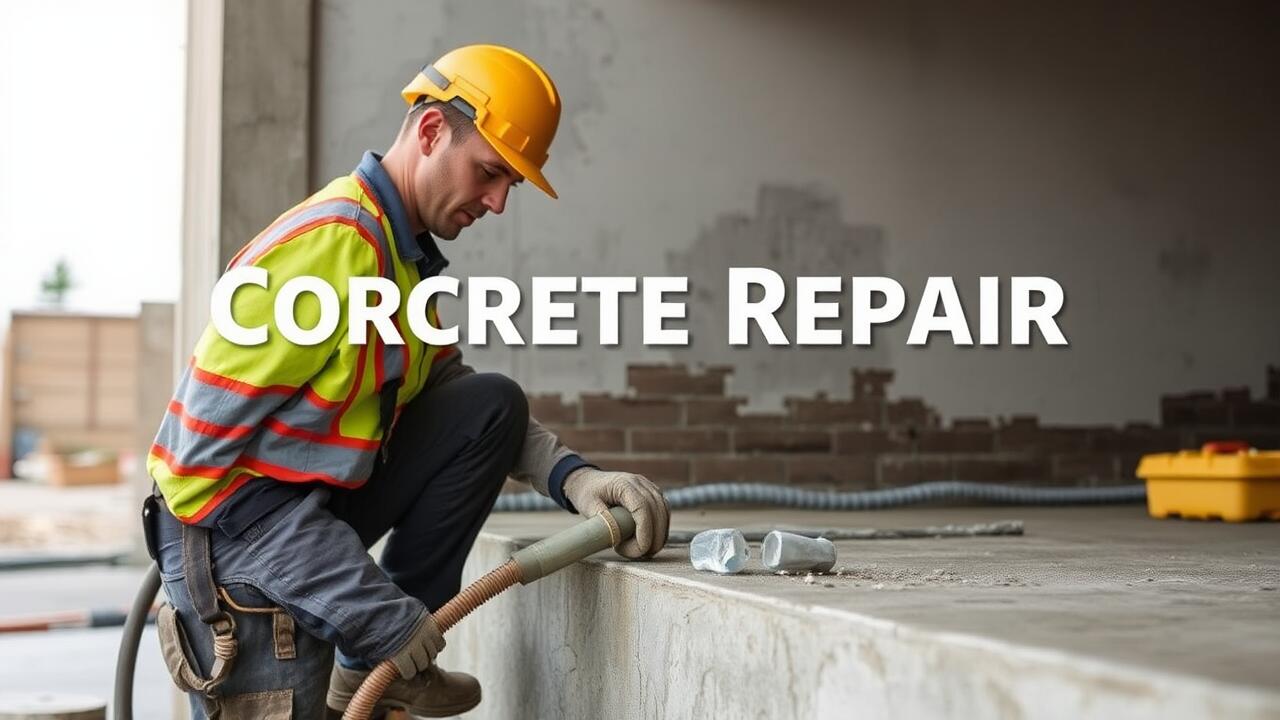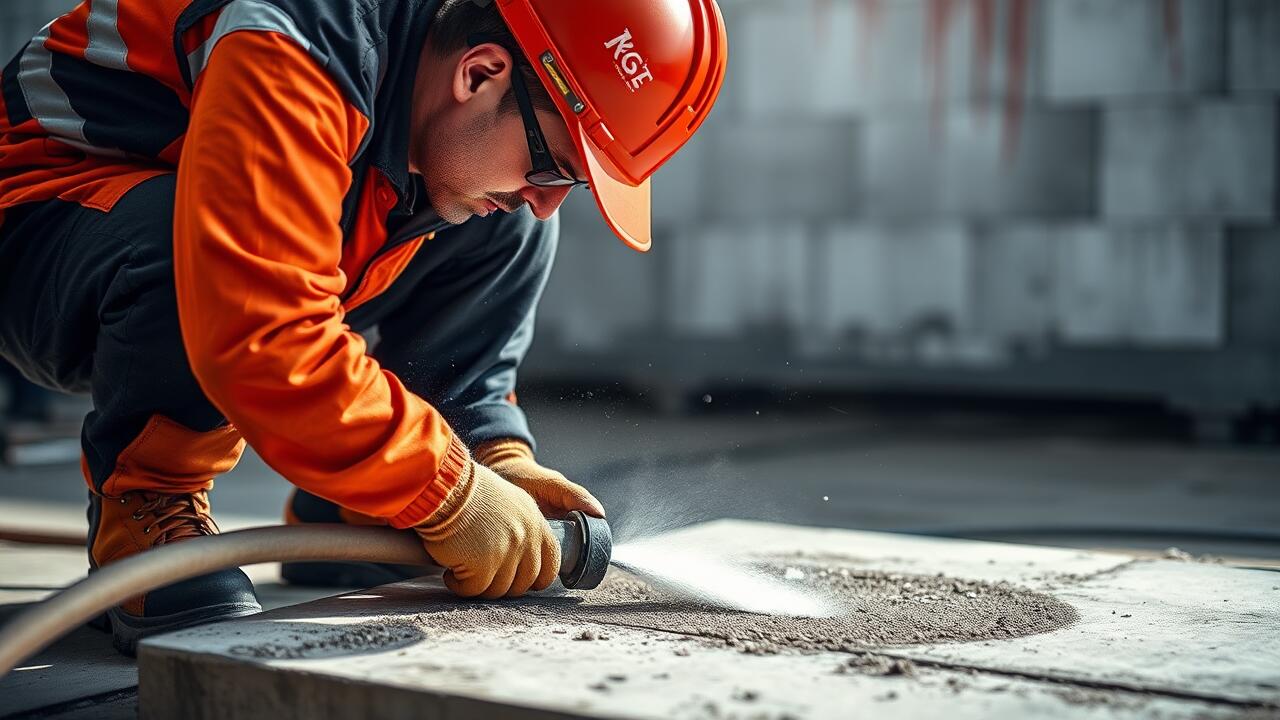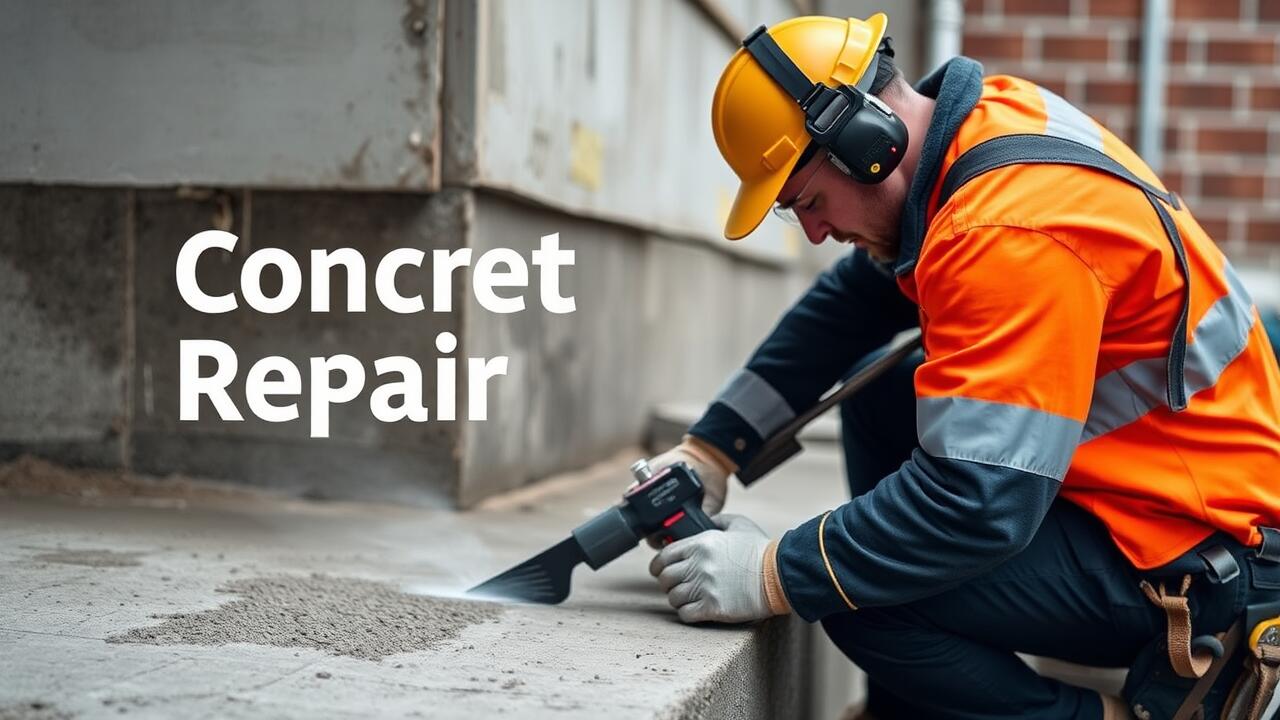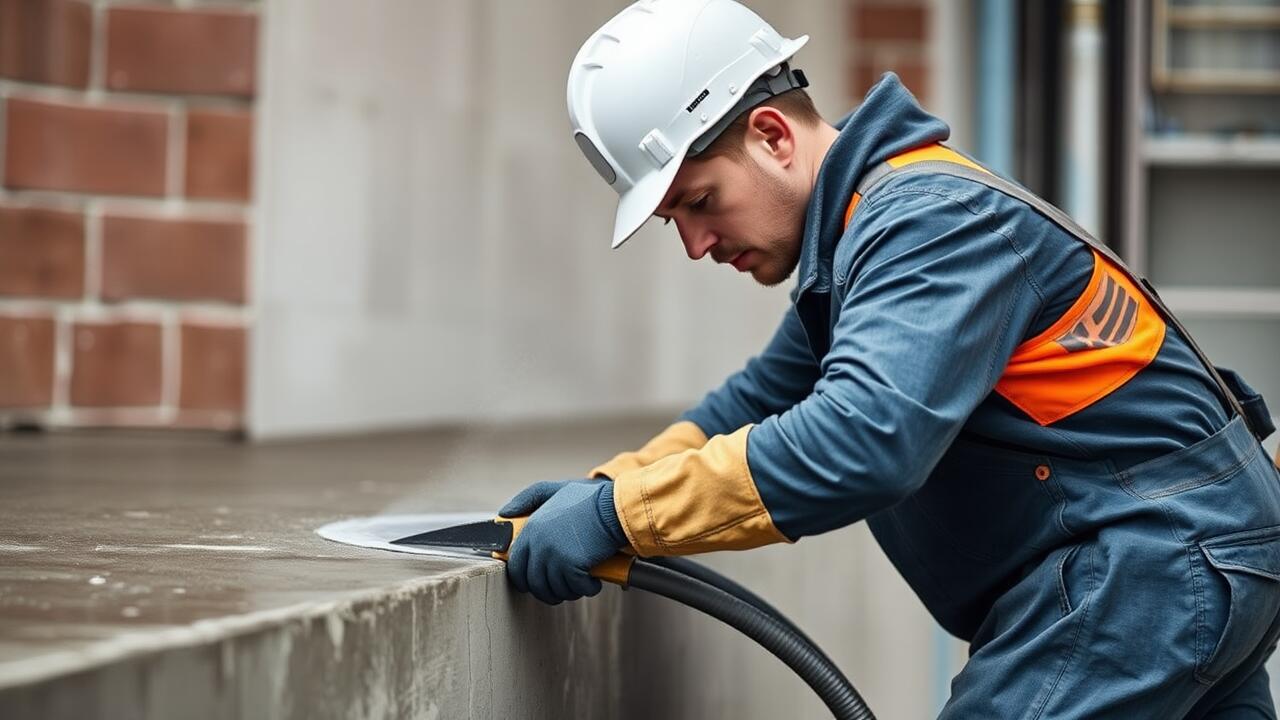
Repair Mortars and Their Applications
Repair mortars play a vital role in restoring and maintaining concrete surfaces. These specialized compounds are designed to bond with existing concrete, providing both structural integrity and aesthetic appeal. Applications for repair mortars range from patching up small cracks to addressing larger sections of damaged slabs. Their versatility makes them suitable for various environments, including residential, commercial, and industrial settings.
Selecting the appropriate repair mortar largely depends on the specific conditions and the type of damage encountered. Factors such as moisture levels, climate, and the extent of deterioration can dictate the ideal formulation to use. Companies like Estrella, Phoenix Concrete Repair offer expertise in choosing the right materials for each unique situation, ensuring durability and longevity in the repairs made. Proper application and selection of repair mortars can significantly extend the life of concrete structures.
Choosing the Right Repair Mortar for Your Project
Selecting the appropriate repair mortar for a concrete project involves careful consideration of various factors. The conditions of the existing concrete surface play a significant role, along with the intended use of the repaired area. Different types of mortars, such as polymer-modified or epoxy-based options, cater to specific applications. Understanding the environment, whether it’s indoor or outdoor, can also influence the choice, as certain products offer better resistance to moisture and temperature fluctuations.
Estrella, Phoenix Concrete Repair offers a range of repair mortars tailored to address specific project needs. Their products are designed to bond effectively with existing concrete and withstand the stresses of everyday use. When choosing a mortar, it is essential to evaluate the specific requirements of the repair, including structural integrity, load-bearing capability, and aesthetic preferences. Users should consult product specifications and consider seeking professional advice to ensure optimal performance and longevity of the repair.
Specialty Repair Products
Specialty repair products cater to unique and challenging situations often encountered in concrete restoration. These products include polyurethane sealants, epoxy injections, and polymer-modified compounds, which are designed to provide enhanced durability and adhesion. Each type targets specific issues such as water damage, structural cracks, or surface wear. For instance, epoxy resins are ideal for repairing deep cracks and voids, while polyurethanes offer excellent flexibility and resistance to moisture.
When selecting specialty repair products, it's crucial to evaluate the specific conditions and requirements of the repair area. Factors such as substrate type, exposure to elements, and load-bearing capacities play a vital role in ensuring successful repairs. Companies like Estrella, Phoenix Concrete Repair, offer tailored solutions and expert guidance to address diverse concrete needs, ensuring that the right products are used for effective and lasting repairs.
Overview of Specialized Options for Unique Situations
Concrete repair can sometimes demand specialized products to address specific issues such as water damage, expansion joint movement, or high-stress areas. Solutions like epoxy injections are effective for repairing cracks in concrete structures, providing a strong bond that restores structural integrity. For surfaces exposed to harsh weather conditions, polymer-modified mortars can enhance durability and flexibility while maintaining strong adhesion and resistance to freeze-thaw cycles.
In addition to epoxies and modified mortars, there are also surface treatments designed to protect and extend the life of concrete. Sealers and coatings can be applied to deter moisture penetration and resist staining. Estrella, Phoenix Concrete Repair offers a range of these specialty products, ensuring customers have access to the ideal solution for unique repair situations. Choosing the right product can significantly improve the longevity and performance of the repaired area.
Factors Influencing Material Selection
Selecting the appropriate repair material requires careful consideration of the specific conditions and types of damage present. Factors such as the extent of the cracks, spalling, or surface wear play a vital role in determining which product will offer the best performance and longevity. Environmental conditions, such as moisture levels, temperature fluctuations, and exposure to chemical agents, must also be taken into account. For example, areas subjected to freeze-thaw cycles may necessitate a different approach than those in dry climates.
Understanding the intended use of the repaired surface can guide the choice of materials as well. High-traffic areas or surfaces that will bear heavy loads require stronger and more durable products compared to decorative surfaces. The reputation of established firms like Estrella, Phoenix Concrete Repair, for instance, can also influence material selection. Their expertise in evaluating project specifics allows for informed decisions regarding the best materials suited for long-lasting and effective repairs.
Assessing Conditions and Types of Damage
Assessing the conditions of the concrete before selecting a repair material is essential. Damages can vary from minor surface cracks to extensive structural issues. A thorough inspection helps identify the specific type and extent of the damage, allowing for appropriate material choices. For instance, a surface crack may only require a simple patching compound, while deeper cracks might need more specialized mortars to ensure a stable and long-lasting repair.
Environmental factors also play a significant role in determining the right repair solution. Moisture levels, temperature fluctuations, and exposure to chemicals can influence the performance of certain materials. Estrella, Phoenix Concrete Repair suggests examining the particular environment in which the concrete resides to select materials that offer the best durability and adhesion. Understanding both the damage and the surrounding conditions is crucial for achieving successful repair outcomes.
FAQS
What is the best material for repairing cracked concrete?
The best material for repairing cracked concrete is typically a repair mortar or a concrete patching compound, which can effectively fill in cracks and restore the surface.
How do I choose the right repair mortar for my concrete project?
When choosing the right repair mortar, consider factors such as the type and extent of damage, the environment where the repair will be made, and the intended use of the repaired area.
Are there specialty repair products for unique concrete issues?
Yes, there are specialty repair products designed for specific issues, such as polymer-modified mortars for high-stress areas or epoxy resins for structural repairs.
What factors should I consider when selecting a concrete repair material?
Key factors to consider include the condition of the existing concrete, the type of damage, the location of the repair (indoor or outdoor), and any exposure to chemicals or weather elements.
Can I use regular concrete mix for repairs?
While regular concrete mix can be used for some repairs, it's often better to use a repair mortar or patching compound specifically designed for repairs, as these products adhere better and are formulated to withstand damage.
